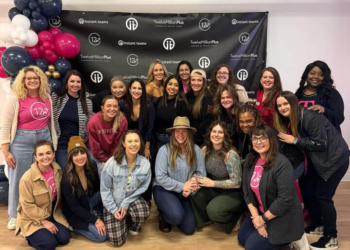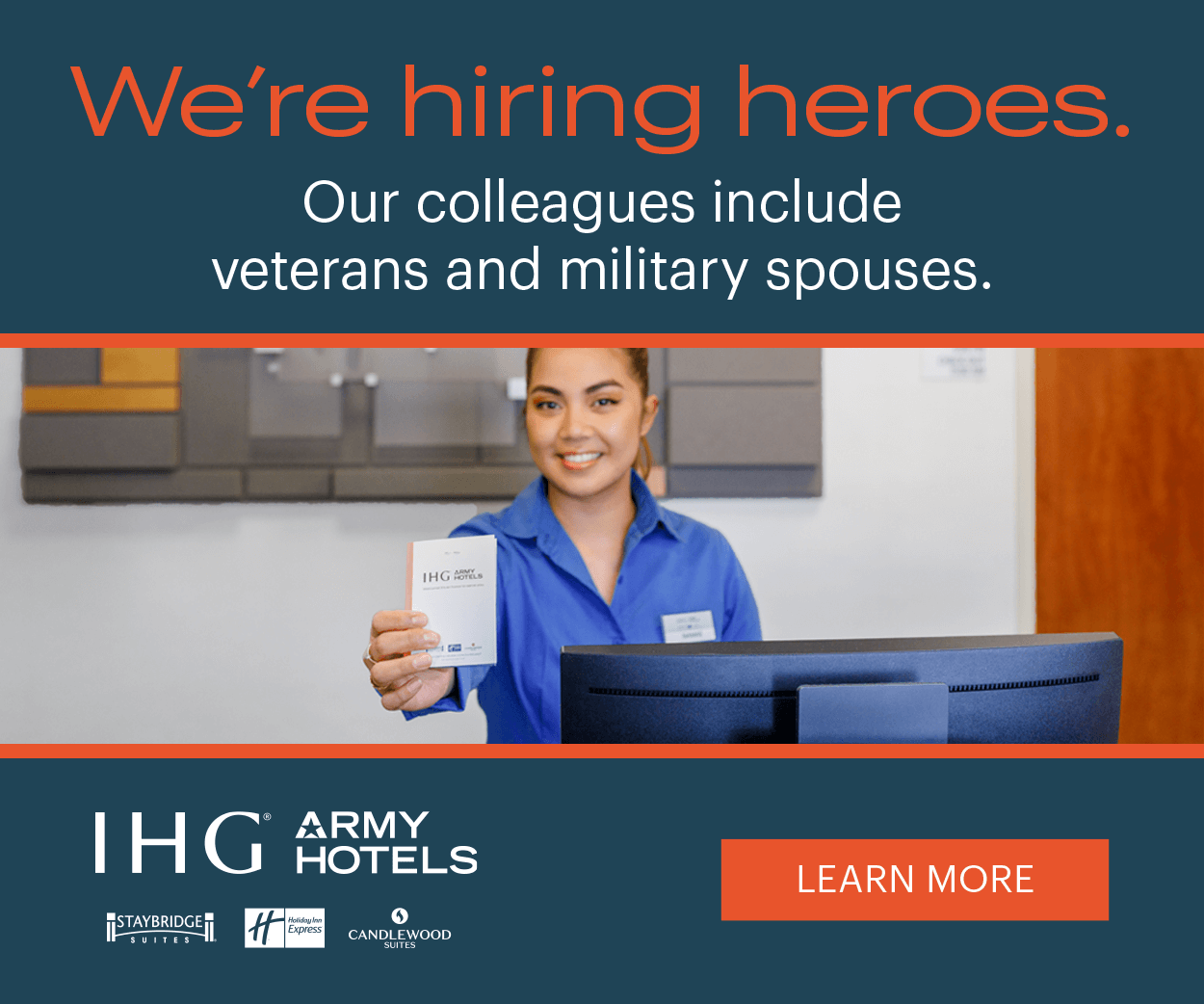Matthew Vean, Navy Federal Credit Union commercial banking lead, remembers what Mary Trautwein said when they met in Colorado:
“Have you ever dated anyone in the military? Do you know what you’re getting yourself into?”
Vean answered “No” and learned how Trautwein’s career — at the time with the Air Force — could impact his if the dating couple married. Vean is strategic, so instead of panicking, he plotted. He continues to do so today, and he helps fellow military spouses (Vean and Trautwein wed in 2014) do the same. He advises:
Look for proven paths
Navy Federal, Vean’s employer since 2018, partnered with Hire Heroes USA to survey military spouses about viable career industries.
Spouses’ top votes:
- Government and public administration
- Business support and human resources
- Healthcare and social assistance
- Educational services
- Information technology
- Financial services
- Defense contracting
- Community-based services
- Retail and customer service
- Manufacturing
What makes these fields desirable? A combination of factors, Vean says:
- Competitive compensation
- Clear career advancement paths
- Consistent work location (either in-person or remote)
- Flexible hours and schedules
- Team-oriented work environment
- Flexibility with childcare options
Most important: The number of opportunities.
“Look at government and public administration,” Vean said. “Look at where military personnel get stationed — D.C., San Diego, Texas, Colorado, North Carolina, Florida — and all these places have a lot of government and public administration jobs.”
Look for college funding
Spouses building a new career or trying to skip a few rungs on the ladder want a degree. Don’t dig into savings or take out a loan, Vean advises. Better to talk to your partner, and pick the right employer.
Trautwein, now a lieutenant colonel in the Space Force serving in the Washington D.C. area, holds two master’s degrees, both earned under the military’s direction. Thirty hours of her GI Bill sat unused. Vean was researching Master of Business Administration degrees priced as high as $150,000.
“I’m not taking on that student loan debt,” Vean thought.
Next: Trautwein called Veterans Affairs and found out she could transfer unused GI Bill hours to her husband.
“In a matter of 10 minutes and filling out paperwork,” Vean said, “she gave me 20 months’ worth [of classes] of her GI Bill.”
More free moola could come from an employer.
“Think about where you work or where you might want to work,” Vean suggested, “and consider their tuition reimbursement.”
Top organizations want top talent.
“It’s the competitive atmosphere we’re in,” he continued. “If you want the top working for you, you have got to offer top benefits.”
Vean notes that Navy Federal’s graduate-level tuition reimbursement skyrocketed from $5,000 to $50,000 in 18 months.
“Think like this: ‘Maybe I’m not going to have that job I want now, but, hey, I want to get in [the organization], get established, start networking and earn that degree,’” Vean says. “Then hopefully, in two or three years, as you’re completing your program, you’re going to get to that next step in a new job.”
READ: First Lady calls military spouse employment a national security imperative
Look for a network
When developing a sustainable, military spouse career, resist the urge to fill out every application, Vean says. Connect with people first instead.
Hop on social media, especially LinkedIn. Look for employees at the organizations that interest you and reach out. Promote yourself with posts and comments.
“It’s the perfect key to get that front door open,” Vean said. “You can really establish your brand.”
Get to know employees virtually, and aim for referrals.
“For companies like Amazon and Facebook, I think 40 to 60 percent of people who work there are job referrals,” Vean said. “I remember I had a job offer a few years ago at Gartner, and they said 48% of the people who work there are internal referrals. I’m hearing that our numbers [of referred employees] at Navy Federal are increasing even more.”
Read comments





































